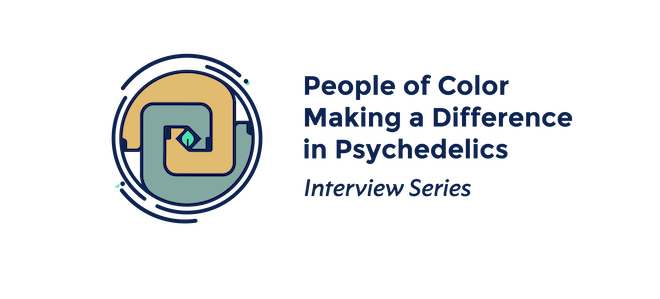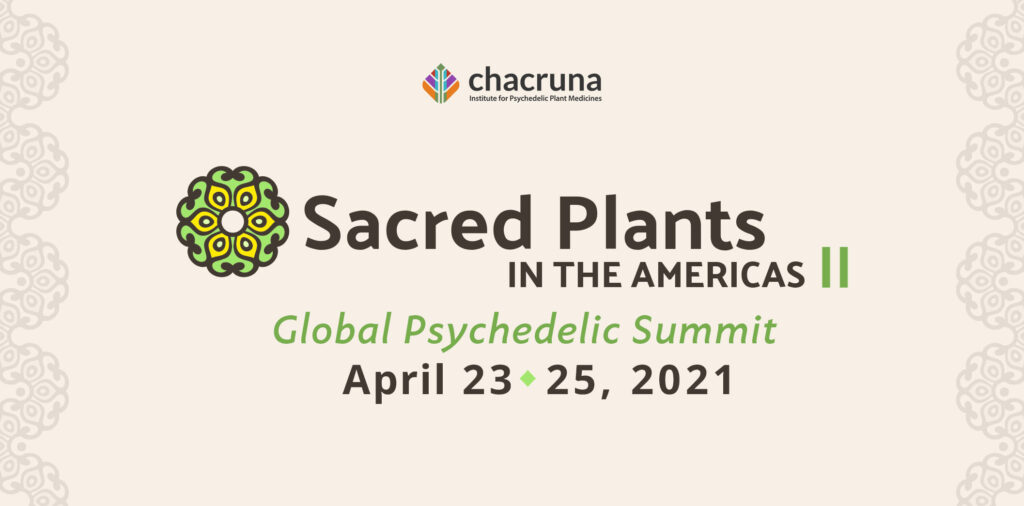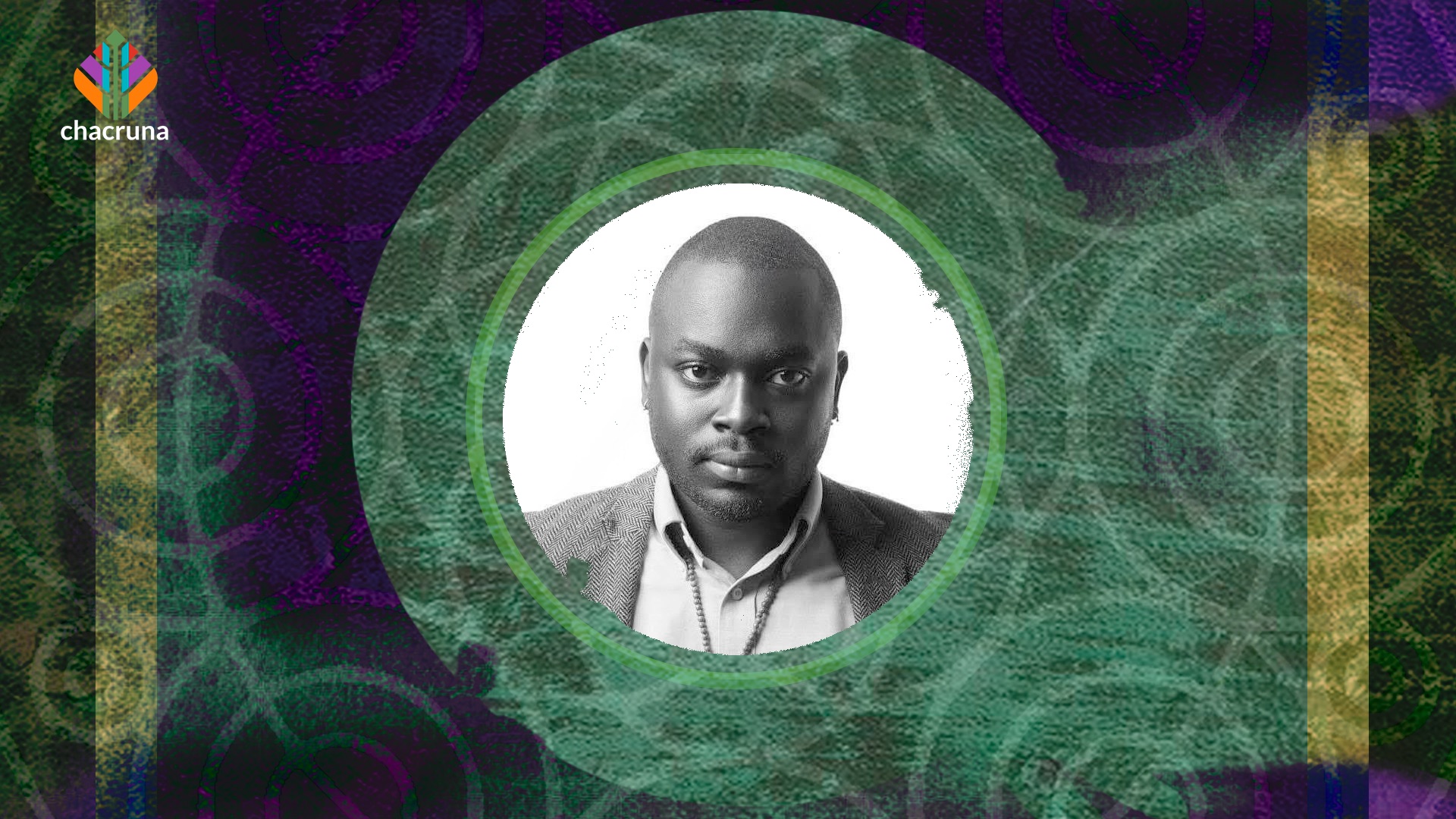- Entheogens, the African Diaspora, and BIPOC communities with Kufikiri Imara - January 20, 2021
- Innovating Native American Health Care Using Culture and Technology With Sutton King - January 11, 2021
- Navigating the Personal and Political in MDMA-assisted Psychotherapy with Sara Reed - December 29, 2020

Kwasi Adusei co-founded the The Psychedelic Society of Western New York, which quickly grew from a platform for psychedelic education to a community service organization, to a place that offered psychedelic peer support. As a psychiatric nurse, Adusei advocates for the use of psychedelic medicine in mental health; however, he believes that psychedelics are not the only solution, but rather a part of a bigger picture of what it means to be whole and human. Community, according to Adusei, is central to his vision for psychedelic medicine.
Adusei led the development of the Sanctuary Project, a grassroots psychedelic harm reduction program that offered services at musical festivals. Also, Adusei has organized events such as the Global Psychedelic Month of Service, sits on the advisory board of Psychedelics Today, and participated in the MAPS MDMA-assisted psychotherapy training for people of color.
In this interview, Kwasi Adusei talks about his own journey as a psychiatric nurse who came to launch the Psychedelic Society of Western New York, the viability of psychedelic medicine as a mental health treatment, the intersection of psychedelics and community service, and a new online network that he is building that fosters peer-to-peer support.
In this interview, Kwasi Adusei talks about his own journey as a psychiatric nurse who came to launch the Psychedelic Society of Western New York, the viability of psychedelic medicine as a mental health treatment, the intersection of psychedelics and community service, and a new online network that he is building that fosters peer-to-peer support.
I had wanted to do psychology because I’d been having “counseling sessions” with people at 12 years old. My father said that he wouldn’t pay for it. My first psychedelic experience brought all this to the surface and blew it up.
Maria Mocerino: How did you get into psychedelics?
Kwasi Adusei: In high school, I was already interested in things related to psychedelics, like exploring the mind, meditation, and aliens (laughter). However, it wasn’t until I went to college that I had an experience with psychedelics. At the time, I was feeling really lost because my dad had forced me to go to pharmacy school. I had wanted to do psychology because I’d been having “counseling sessions” with people at 12 years old. My father said that he wouldn’t pay for it. My first psychedelic experience brought all this to the surface and blew it up.
MM: Counseling people at 12? Can we back up a moment, what do you mean by that?
KA: My classmates would write me letters. They would share what was going on with them, about their parents being mad at them, or about a girl that they liked. I would write back letters sharing the limited insights I had; but I enjoyed it. It was something that happened naturally, in other words. In my twelve-year-old mind, I felt that I was meant to be a psychologist, so it set me on a path towards the field.
I spent a lot of my time reading up on Freud and the basics of social psychology in middle school and in high school. I had fantasized about the image of being in an office with a bunch of old books with patients. I also thrived on one-on-one connections because I never felt comfortable in groups. Being an immigrant, I was always an odd man out, even though I grew up in a community that was largely one of color. I always felt like an outsider.
Contrary to what I thought my first acid experience would be like, it was mostly not that beautiful of an experience (laughter). I didn’t know anything about set and setting, I had no guidance, and I was alone. I just dove in.
MM: What was your psychedelic experience like?
KA: On this particular morning I’d woken up late for an exam, but didn’t seem to care much. My heart wasn’t into school. Later that day, a friend sent a text asking if I wanted to try acid. Not really knowing what to expect and thinking my day was already done after missing the exam, I figured, “why not?” Contrary to what I thought my first acid experience would be like, it was mostly not that beautiful of an experience (laughter). I didn’t know anything about set and setting, I had no guidance, and I was alone. I just dove in.
Soon after this psychedelic experience, I told my father that I was going to pay for school myself. I switched my major to psychology.
I started off in a state of awe, as if a veil had been lifted. I saw people, nature, and even myself differently; but, as the sun started to set, things started getting tough as thoughts about who I was or what I was doing emerged that I couldn’t verbalize. I made my way back to the dorm and locked myself in my bedroom. If you were to think about that image of me, it makes sense. I felt trapped in my mind, so I created the same space around me. I began to reflect on that, my life, and how I felt lost, alone, and disconnected. Soon after this psychedelic experience, I told my father that I was going to pay for school myself. I switched my major to psychology.
Sign up to our Newsletter:
MM: When did you realize the potential utility of psychedelics in mental health treatment and how community factors into that?
KA: In 2016, I was at a music festival in Buffalo called “Night Lights Music Festival.” As the introverted kid who always felt like an outsider, I was stumped and observing the scene. I saw people dressed up in funny clothing, an Asian man with dreads, and a few naked people running around.
I was like, “what the hell is this?” I was very confused; I just thought this festival looked cool online because it reminded me of Avatar. Now, in real life, I was confused (laughter). Jokes aside, the thing that I loved the most was that people were expressing themselves authentically. People hugged throughout the night. As someone who’d always felt alone, I felt community for the first time. It was a community embedded in values beyond the mainstream.
At some point, my focus started to shift. Someone was yelling out into the crowd that he had LSD and mushrooms. The only reason he was there was to make money. It saw the same capitalist mindset that I thought I had escaped from all around me. The vendors were there to make money, and so were the bands. In fact, the entire festival. I felt duped; then, more alone than I had before the trip.
So much of mental health treatment is predicated on building mindfulness in a person; so, I realized that psychedelics could be really useful in mental health treatment.
At that moment, I thought about the book, Be Here Now by Ram Dass.I tuned out of my mind and into the world. My presence was the missing piece. I was able to step out of my ego-mind and just be there, in the moment. A simple switch made all the difference. So much of mental health treatment is predicated on building mindfulness in a person; so, I realized that psychedelics could be really useful in mental health treatment.
MM: How did you get involved with MAPS, and how did you start up a psychedelic community service group in Buffalo?
KA: I wanted to work with psychedelics in an intentional way, and community service was always a big part of my life. In the early aughts, my sister took me to do community service with her while I was in middle school. Then, I joined community service clubs in high school and college. When I started doing psychedelics, they helped me create a framework around community service. The idea of “taking care” is at the heart of it.
I saw that a lot of psychedelic groups were focusing on education, so the Psychedelic Society of Western New York was offering something different; we were centered on the principles of both community and service.

Join us at Sacred Plants in the Americas II
I saw that a lot of psychedelic groups were focusing on education, so the Psychedelic Society of Western New York was offering something different; we were centered on the principles of both community and service. We went to clean-ups, soup kitchens, and food pantries. We also started a community garden in a neighborhood where all the food we grew was free to the neighbors. We partnered with organizations that supported refugees in the area through fundraising, and connected with projects that helped at-risk youth find shelter and security. The community developed out of a purpose that everyone cared about.
Eventually, the idea of community service expanded into the festival environment, and we started going to music festivals to care for people who were having difficult psychedelic experiences. Essentially, we created what Zendo does, but we work at the grassroots level. At one point, we had up to 40 volunteers to deliver around-the-clock care.
I’m currently working on building a peer-to-peer support network online, alongside my collaborators. Think Psychedelics Today, but with counselors, reiki masters, yoga teachers, herbalists, and mindfulness teachers that support psychedelic integration for POC and other marginalized communities.
MM: What are you working on right now?
KA: I’m currently working on building a peer-to-peer support network online, alongside my collaborators. Think Psychedelics Today, but with counselors, reiki masters, yoga teachers, herbalists, and mindfulness teachers that support psychedelic integration for POC and other marginalized communities. For example, my friend, Yarelix Estrada, has brought other people of color in the psychedelic space together to work on this project, along with other amazing POC organizers around the country.
We intend on creating a platform that includes both licensed clinicians and non-licensed healers of color to support the integration of people of color who might need or want that level of catered integration. We also intend to include culturally-attuned psychedelic education that honors the true history of psychedelics beyond the Western narrative, as well as organizer support. Possibly, we will also tackle research on microdosing in communities of color.
Psychedelics alone won’t be the answer. We have to reimagine what healing looks like, and it has to be at the grassroots level. We look at psychiatric medications as if they were curing a disease. They are treating the symptoms of the disease. Drugs need to be looked at as a means of supporting someone to make a complete lifestyle change, which isn’t easy for anyone, even if they are healthy.
I hate calling psychedelics “tools.” In my mind, you’re building a relationship with medicine. You don’t build relationships with tools.
I hate calling psychedelics “tools.” In my mind, you’re building a relationship with medicine. You don’t build relationships with tools.
MM: What do you mean?
KA: When we talk about something that connects you to spirit, the word tools seems… minimizing. For example, would you call a mentor, a tool? No, these are medicines. Call them guides, plant spirits, or something you can build a relationship with. I see plant medicines as part of that vision towards holistic wellness.
MM: What about bringing this into communities of color?
KA: Even when psychedelics become legal for use in therapy, most psychedelic use will occur in homes, in the woods, and in communities, especially as the medicine further spreads throughout the mainstream. We can’t count on Western medicine to do right by people of color due to legitimate barriers to care, some of which are financial and some which are related to deep mistrust. That’s why it’s important to build support networks at a peer-to-peer level.
There is a lack of access to mental health treatment for communities of color, in general. Already, “mental health” is heavily stigmatized in these communities, so there’s a step missing in terms of how people are thinking about this.
Peer-to-peer support is crucial to bringing the spirit of psychedelic medicine into the real world: it is through the community that the healing happens on a micro and macro level.
It seems unwise to just bring psychedelics into communities of color without emphasizing all the other pieces involved. Peer-to-peer support is crucial to bringing the spirit of psychedelic medicine into the real world: it is through the community that the healing happens on a micro and macro level.
Art by Mariom Luna.
Take a minute to browse our stock:
Did you enjoy reading this article?
Please support Chacruna's work by donating to us. We are an independent organization and we offer free education and advocacy for psychedelic plant medicines. We are a team of dedicated volunteers!
Can you help Chacruna advance cultural understanding around these substances?











